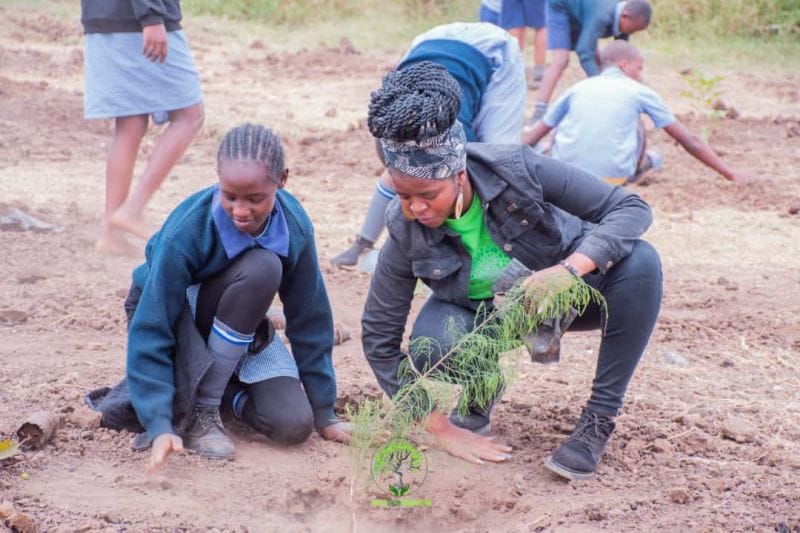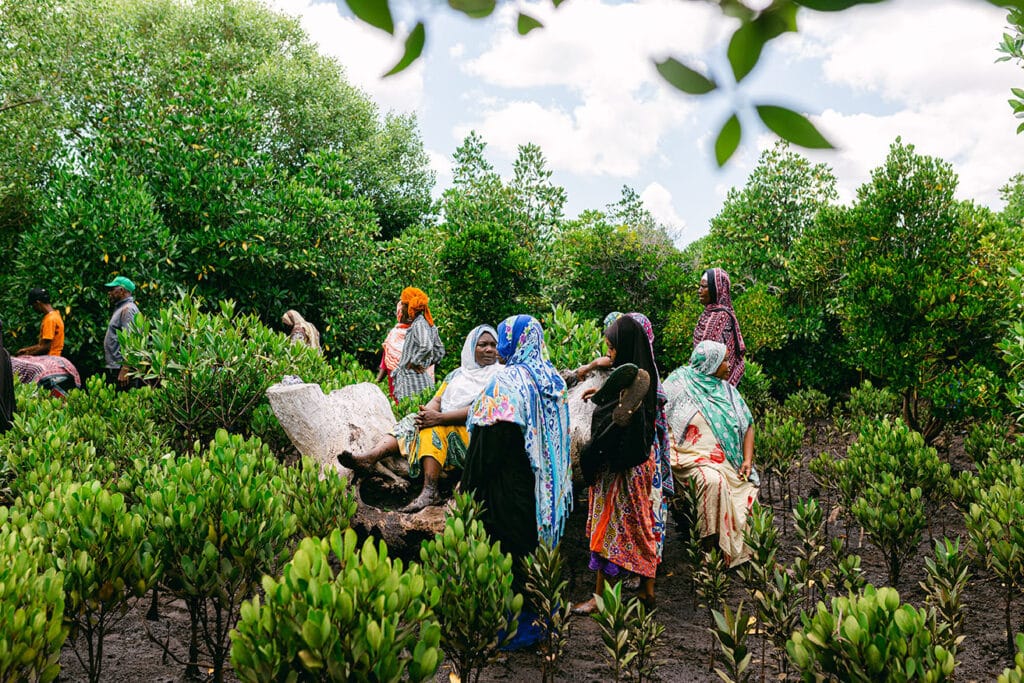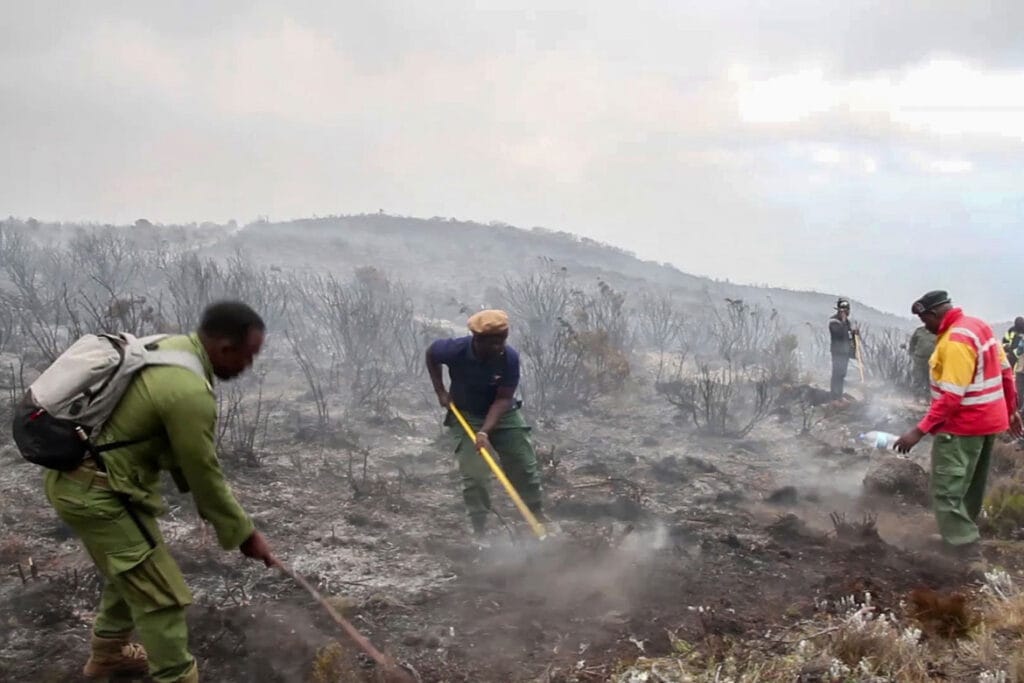Tanzania, renowned for its breathtaking landscapes and abundant wildlife, is at the forefront of environmental conservation and sustainable tourism. As one of Africa’s premier safari destinations, Tanzania leverages the power of tourism to drive significant environmental change through innovative green initiatives. By embracing sustainability, Tanzania ensures that its natural treasures are preserved for future generations while providing unforgettable experiences for travelers. Join Future African Safari as we explore Tanzania’s green initiatives and discover how tourism is playing a pivotal role in fostering environmental stewardship and positive change.



1. Conservation-Focused National Parks and Reserves
Tanzania’s national parks and reserves are the backbone of its conservation efforts, safeguarding diverse ecosystems and endangered species. These protected areas not only preserve wildlife but also serve as models for sustainable tourism.
Serengeti National Park: Home to the iconic Great Migration, Serengeti is a symbol of wildlife conservation. Tourism revenue supports anti-poaching units and habitat preservation, ensuring the survival of species like lions, elephants, and wildebeest.
Ngorongoro Conservation Area: This UNESCO World Heritage site combines wildlife conservation with human habitation, promoting sustainable coexistence between Maasai communities and wildlife. Eco-friendly tourism practices help maintain the delicate balance within the crater ecosystem.
Ruaha National Park: As Tanzania’s largest national park, Ruaha plays a crucial role in conserving large mammal populations and diverse bird species. Sustainable tourism initiatives here focus on minimizing environmental impact while maximizing conservation funding.
2. Eco-Friendly Accommodations and Lodges
Tanzania boasts a growing number of eco-friendly accommodations that prioritize sustainability without compromising on comfort and luxury. These lodges and camps implement green practices to reduce their ecological footprint.
Solar-Powered Lodges: Many lodges harness solar energy to power their facilities, reducing reliance on fossil fuels and minimizing carbon emissions. This renewable energy source ensures a sustainable and uninterrupted power supply.
Water Conservation Systems: Eco-lodges incorporate rainwater harvesting, greywater recycling, and efficient irrigation systems to conserve water resources. These practices are essential in maintaining the health of surrounding ecosystems.
Waste Management Programs: Comprehensive waste management strategies, including recycling, composting, and minimizing single-use plastics, help keep Tanzania’s pristine environments clean and free from pollution.
3. Community-Based Conservation Projects
Empowering local communities is a cornerstone of Tanzania’s green initiatives. By involving indigenous populations in conservation efforts, these projects promote sustainable livelihoods and foster a sense of ownership and responsibility towards the environment.
Maasai Empowerment Programs: Initiatives that support Maasai communities through eco-tourism and sustainable agriculture provide alternative income sources, reducing reliance on practices that harm the environment. These programs also promote cultural preservation and environmental education.
Local Wildlife Rangers: Training and employing local wildlife rangers not only enhances anti-poaching efforts but also creates employment opportunities within communities. These rangers play a vital role in protecting Tanzania’s wildlife and maintaining park integrity.
Sustainable Agriculture Projects: Promoting agroforestry and organic farming practices helps restore degraded lands, increase biodiversity, and ensure food security for local populations while preserving natural habitats.
4. Anti-Poaching and Wildlife Protection Initiatives
Poaching remains a significant threat to Tanzania’s wildlife. In response, robust anti-poaching measures and wildlife protection initiatives are implemented to safeguard endangered species and maintain ecological balance.
Advanced Surveillance Technology: Utilizing drones, GPS tracking, and infrared cameras enhances monitoring capabilities, enabling rangers to detect and prevent poaching activities more effectively.
Community Vigilance Programs: Engaging local communities in wildlife protection through awareness campaigns and incentive-based programs fosters a collaborative approach to conservation, making it easier to identify and report poachers.
International Partnerships: Collaborations with global conservation organizations provide additional resources, expertise, and funding to bolster Tanzania’s anti-poaching efforts and wildlife protection strategies.
5. Sustainable Tourism Practices
Promoting responsible tourism is essential for minimizing environmental impact and ensuring that tourism contributes positively to conservation efforts. Tanzania’s sustainable tourism practices set a benchmark for eco-friendly travel.
Carbon Offset Programs: Many safari operators offer carbon offset options, allowing travelers to compensate for their travel emissions by supporting reforestation projects and renewable energy initiatives in Tanzania.
Educational Tours: Guided tours emphasize the importance of conservation, educating tourists about wildlife behaviors, ecosystem dynamics, and the challenges faced by Tanzania’s natural habitats.
Responsible Wildlife Viewing: Adhering to guidelines for safe and respectful wildlife viewing ensures minimal disturbance to animals and their habitats, promoting sustainable interactions between humans and wildlife.
6. Reforestation and Habitat Restoration Projects
Reforestation and habitat restoration are critical for combating climate change, preserving biodiversity, and maintaining ecosystem services. Tanzania actively engages in projects aimed at restoring degraded landscapes and expanding forest cover.
Tree Planting Initiatives: Community-driven tree planting programs restore native forests, enhance carbon sequestration, and provide habitat for wildlife. These initiatives also offer employment opportunities and promote environmental stewardship among local populations.
Wetland Restoration: Protecting and restoring wetlands enhances water quality, supports diverse aquatic ecosystems, and mitigates the impacts of climate change. Sustainable tourism activities in these areas are carefully managed to preserve their ecological integrity.
Protected Corridor Establishment: Creating wildlife corridors between national parks and reserves facilitates animal migration, genetic diversity, and ecosystem connectivity, ensuring the long-term survival of species.
7. Innovative Conservation Funding through Tourism
Tourism serves as a vital source of funding for Tanzania’s conservation efforts, enabling the implementation of innovative projects and the expansion of protected areas.
Park Fees and Permits: Revenue generated from park entry fees and safari permits directly supports conservation initiatives, including anti-poaching efforts, habitat management, and community development programs.
Eco-Tourism Ventures: Investments in eco-tourism ventures, such as eco-lodges and sustainable safari operators, provide ongoing financial support for conservation projects while promoting environmentally friendly travel experiences.
Corporate Sponsorships and Donations: Partnerships with corporate sponsors and donations from eco-conscious travelers help fund specific conservation projects, research initiatives, and wildlife protection programs.
8. Future Prospects: Enhancing Sustainability in Tanzanian Tourism
Tanzania continues to innovate and expand its green initiatives, ensuring that tourism remains a force for positive environmental change. Future prospects include:
Expansion of Protected Areas: Increasing the number and size of protected areas to encompass more diverse habitats and species, enhancing overall biodiversity conservation.
Technology Integration: Leveraging emerging technologies, such as artificial intelligence and blockchain, to improve conservation monitoring, data management, and transparency in funding allocation.
Global Conservation Collaborations: Strengthening collaborations with international conservation organizations to share knowledge, resources, and best practices, further boosting Tanzania’s conservation capabilities.
Conclusion: Join the Movement for a Greener Tanzania
Tanzania’s green initiatives demonstrate a profound commitment to environmental conservation and sustainable tourism. By choosing to explore Tanzania with Future African Safari, you become a part of this transformative movement, contributing to the preservation of its natural wonders and the well-being of local communities. Sustainable tourism not only enhances your travel experience but also ensures that Tanzania remains a vibrant and thriving destination for generations to come.
Ready to make a positive impact while experiencing the best of Tanzania? Contact Future African Safari today to customize your eco-friendly safari itinerary and embark on a journey that celebrates and supports Tanzania’s remarkable environmental initiatives. Together, we can drive meaningful change and preserve the natural beauty of this extraordinary country.
Explore more about our safari packages and discover the best of Tanzania with Future African Safari. Your unforgettable African adventure starts here!


Comments are closed.